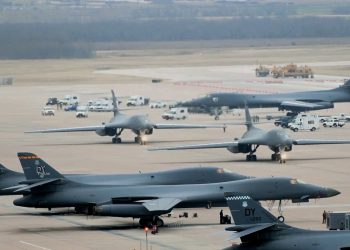US Department of Defense,
WASHINGTON: The Air Force is “all in” with regard to unmanned aerial systems, and the service’s leaders understand Defense Secretary Robert M. Gates’ direction to field the systems in the combat theater as fully and quickly as possible, the commander of 12th Air Force and Air Forces Southern said Jan. 12.
Air Force Lt. Gen. Norman R. Seip participated in a teleconference with online journalists and bloggers.
“Next year, the Air Force will procure more unmanned aircraft than manned aircraft,” the general said. “So I think that makes a very pointed statement about our commitment to the future of UAS and what it brings to the fight in meeting the requirements of combatant commanders.”
Seip said the Air Force has 85 percent of its theater-level UAS capability deployed in support of operations in Southwest Asia. The other 15 percent are stateside to train UAS pilots and for operational test and development. The Air Force is doing all it can to speed up the UAS pilot training process, he added.
Additionally, he said, teams at the Air Warfare Center at Nellis Air Force Base, Nev., are developing countermeasures for potential enemy use of unmanned aerial systems.
“When, in the future, we encounter a near-peer or asymmetric threat, or a terrorist organization that has the UAS capability, we’re going to certainly need to be working toward active techniques so that we can counter those capabilities,” he said.
These techniques will be essential for the Air Force to dominate airspace when needed and allow for freedom of maneuver for ground forces, the general explained.
Seip also updated the group on maintenance issues surrounding A-10 Thunderbolt II close-air-support fighter jets following a technical order issued in October requiring immediate inspection and repair of wing cracks in a portion of the A-10 fleet.
Though 40 percent of thin-skinned A-10s are grounded, he said, 12th Air Force still is able to provide warfighters with the close-air support they need in the combat theater. Repairs should be completed by June, he said.
Seip noted 12th Air Force’s busy pace in supporting the war on terror and continuing its ongoing mission as the air component for U.S. Southern Command.
“It is an exciting time in both 12th Air Force and Air Forces Southern,” he said, “as the Air Force continues to fight the long war on terrorism as well as support its ‘soft-power’ commitment in South [America], Central America and the Caribbean.”
With headquarters at Davis-Monthan Air Force Base, Ariz., Air Combat Command’s 12th Air Force controls conventional fighter and bomber forces based in the western United States.








